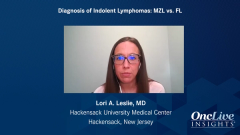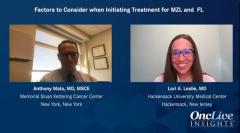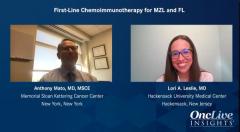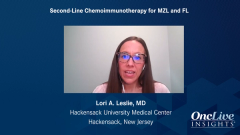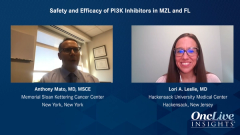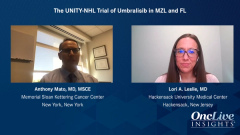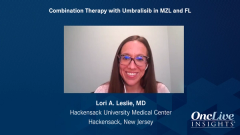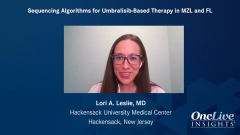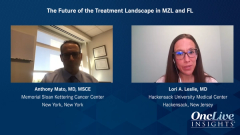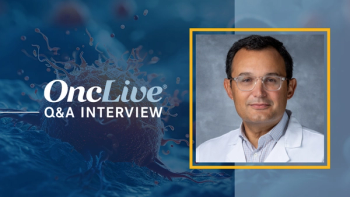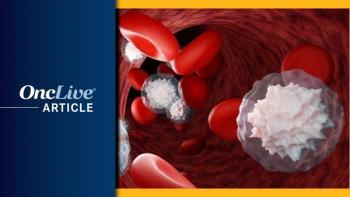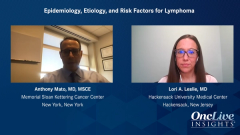
The Future of the Treatment Landscape in MZL and FL
Key opinion leaders in hematology-oncology consider the future treatment landscape for marginal zone and follicular lymphomas and reflect on the role of chemotherapy and targeted agents as induction or maintenance.
Episodes in this series

Anthony Mato, MD, MSCE: Let’s be optimistic now and look toward the future with a couple different questions. First of all, do you see chemotherapy or chemoimmunotherapy being supplanted by targeted agents in the front line for either follicular or marginal zone lymphoma, or both?
Lori A. Leslie, MD: As of right now, R-squared—lenalidomide and rituximab—does have a role in certain patients with frontline follicular lymphoma, probably more so than marginal zone lymphoma. For the foreseeable future, the next 5 or even 10 years, there will still be a role for chemotherapy. The progress in targeted therapy in the frontline setting has been much slower in these diseases compared to CLL [chronic lymphocytic leukemia], for example. I am hopeful that one day we’ll have better predictive and prognostic markers where we can select patients who really won’t benefit from chemotherapy.
Anthony Mato, MD, MSCE: What about alternative strategies for maintenance? Do you see PI3K inhibitors or immunomodulatory agents being a viable maintenance strategy in these diseases?
Lori A. Leslie, MD: The research going on in PI3K where you can maybe do some induction or intermittent dosing followed by a lower-dose maintenance might be a way that we can better maximize use of that class of drugs. I’m eager to see how that unfolds over the next few years. As we get other agents—maybe not CAR [chimeric antigen receptor] T-cell therapy, but the bispecific T-cell engagers—maybe that’s something we can do as we look into ways to consolidate approaches or even add to the frontline setting as a nonchemotherapy-type approach. Like with CLL, we need to work out minimal residual disease and figure out what to do so that patients don’t have to be on long-term therapy with some of these targeted agents.
Anthony Mato, MD, MSCE: That’s a great answer and a great place for us to end. We started by talking about epidemiology, and we’ve talked about clinical presentations, but we spent most of the time highlighting how impressively the landscape has changed over time, how much of a shift it has been away from chemotherapy in later lines of therapy to targeted agents, and most importantly, how many options we have for patients. We’ve talked about 2 or 3 therapies that have been approved in the last 3 months. That’s amazing. Ten years ago, we would have never been able to have this conversation. I’d like to thank you for being here. I really enjoyed this conversation. As always, I learned a lot from you, and I hope we can get together again to talk about other exciting topics in the field.
Lori A. Leslie, MD: Thank you very much for moderating and for all of your insights. I hope to see you soon.
Transcript Edited for Clarity


